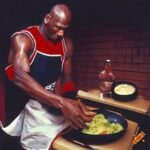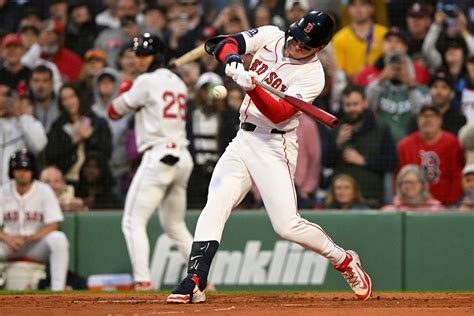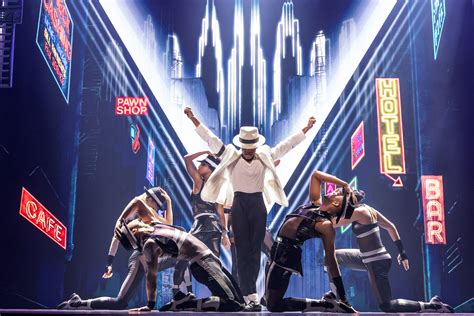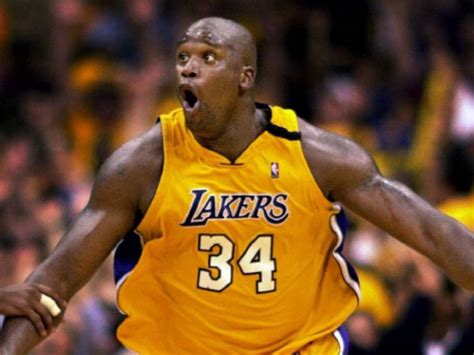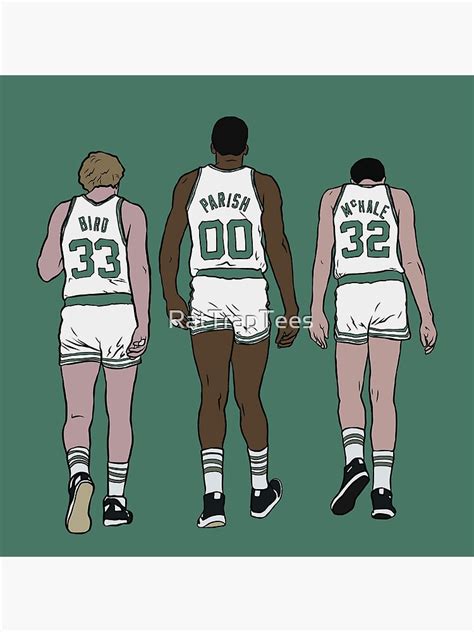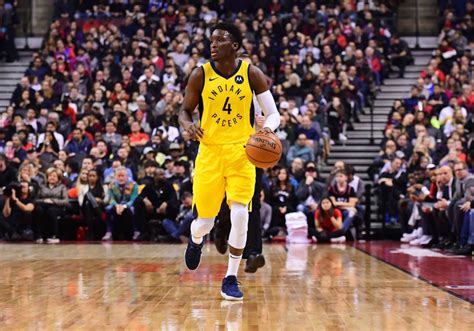
Victor Oladipo has revealed the severe extent of his knee injury and the discouraging prognosis he received following a botched quadriceps tendon surgery in 2019, stating that a doctor told him, “Your career is probably…over.” In a candid interview, Oladipo detailed the physical and mental challenges he faced during his arduous recovery, highlighting the doubts that plagued him and the unwavering determination that fueled his comeback.
Victor Oladipo, currently a member of the Oklahoma City Thunder, has broken his silence regarding the devastating knee injury he sustained in 2019 and the bleak outlook presented to him by medical professionals. In a recent interview, Oladipo disclosed that a doctor bluntly informed him his career was likely over following a botched surgery to repair his ruptured quadriceps tendon. This revelation sheds light on the immense hurdles Oladipo has overcome to continue his NBA career, offering a glimpse into the mental and physical toll of his rehabilitation.
Oladipo’s injury occurred during his tenure with the Indiana Pacers on January 23, 2019, in a game against the Toronto Raptors. He suffered a complete rupture of the quadriceps tendon in his right knee, a severe injury that often requires extensive surgery and rehabilitation. The initial surgery was intended to repair the tendon and restore functionality to his knee. However, Oladipo claims the surgery was not performed correctly, leading to further complications and casting significant doubt on his ability to return to professional basketball.
“I went through a surgery, and the surgery wasn’t done right,” Oladipo stated. “So now I’m damn near starting all over, and now I’m hearing whispers, ‘Your career is probably…’ I heard that. I don’t forget things like that.”
The botched surgery significantly prolonged Oladipo’s recovery process, forcing him to essentially restart his rehabilitation from the ground up. The mental impact of this setback was profound, as Oladipo grappled with the possibility that his career, which had shown so much promise, might be prematurely over.
Despite the grim prognosis, Oladipo refused to concede defeat. He embarked on a rigorous and demanding rehabilitation program, pushing his body and mind to their limits. The journey was fraught with challenges, including pain, setbacks, and moments of doubt. However, Oladipo remained steadfast in his commitment to returning to the court.
“It was tough, man,” Oladipo admitted. “It was really, really tough. There were days where I wanted to give up. There were days where I was like, ‘This is it.’ But I just kept going. I just kept believing in myself.”
Oladipo’s determination was fueled by a deep-seated desire to prove his doubters wrong and to reclaim his place as one of the NBA’s elite players. He leaned on his faith, his family, and his unwavering work ethic to persevere through the arduous recovery process.
Following the initial surgery, Oladipo underwent a second procedure to correct the issues stemming from the first. This corrective surgery, coupled with his relentless rehabilitation efforts, gradually allowed him to regain strength and mobility in his knee.
Oladipo made his return to the NBA on January 29, 2020, almost exactly a year after sustaining the injury. He played in 13 games for the Pacers before the season was suspended due to the COVID-19 pandemic. While he showed flashes of his former self, it was evident that he was still working his way back to full strength and conditioning.
Since his return, Oladipo has faced an uphill battle to regain his pre-injury form. He has played for several teams, including the Houston Rockets, Miami Heat, and Oklahoma City Thunder. He has continued to struggle with injuries, which have limited his playing time and hindered his ability to consistently perform at a high level.
Despite these challenges, Oladipo remains optimistic about his future. He believes that he can still contribute to a winning team and that he can overcome the obstacles that have stood in his way.
“I’m not done yet,” Oladipo declared. “I still have a lot to give to the game. I’m going to keep working hard, and I’m going to keep believing in myself. I know that I can still be a great player in this league.”
Oladipo’s story is one of resilience, perseverance, and unwavering belief in oneself. It serves as an inspiration to athletes and individuals alike who face adversity and are determined to overcome it. His willingness to share his experiences, including the darkest moments of his recovery, provides valuable insight into the mental and physical challenges of recovering from a career-threatening injury.
The impact of Oladipo’s injury extended beyond his personal struggles. His absence from the Indiana Pacers significantly affected the team’s performance and trajectory. The Pacers, who had been considered a contender in the Eastern Conference prior to Oladipo’s injury, struggled to maintain their success without their star player.
Oladipo’s journey also highlights the importance of proper medical care and the potential consequences of surgical errors. His experience underscores the need for patients to thoroughly research their medical options and to seek out experienced and reputable surgeons.
Moreover, Oladipo’s story sheds light on the mental health challenges that athletes often face when dealing with injuries. The pressure to return to play, the fear of re-injury, and the uncertainty about the future can take a significant toll on an athlete’s mental well-being.
Oladipo’s openness about his struggles can help to break down the stigma surrounding mental health in sports and encourage other athletes to seek help when they need it.
Moving forward, Oladipo’s focus remains on staying healthy and contributing to the Oklahoma City Thunder. He is determined to prove that he can still be a valuable asset to a team and that he can overcome the challenges that he has faced.
His story serves as a reminder that even in the face of seemingly insurmountable odds, it is possible to persevere and achieve one’s goals with hard work, determination, and an unwavering belief in oneself.
Victor Oladipo’s career trajectory, once marked by All-Star selections and All-NBA honors, has been significantly altered by the devastating quadriceps injury he sustained. His journey back from the brink serves as a powerful testament to his resilience and unwavering commitment to the sport.
The initial stages of Oladipo’s career showed immense promise. Drafted second overall in the 2013 NBA draft by the Orlando Magic, he quickly established himself as a dynamic and versatile player. His athleticism, scoring ability, and defensive prowess made him a valuable asset to the Magic, and he earned NBA All-Rookie First Team honors in his debut season.
After three seasons in Orlando, Oladipo was traded to the Oklahoma City Thunder in 2016. He spent one season in Oklahoma City, playing alongside Russell Westbrook, before being traded to the Indiana Pacers in 2017.
It was in Indiana that Oladipo truly blossomed into a star. He became the focal point of the Pacers’ offense, showcasing his full array of skills and leading the team to playoff appearances. In his first season with the Pacers, he averaged 23.1 points, 5.2 rebounds, and 4.3 assists per game, earning him his first All-Star selection and the NBA’s Most Improved Player award.
The following season, Oladipo continued his stellar play, averaging 21.2 points, 5.7 rebounds, and 4.6 assists per game. He was once again named an All-Star and earned All-NBA Third Team honors. He also established himself as one of the league’s premier defenders, earning NBA All-Defensive First Team honors.
Oladipo’s success in Indiana made him a beloved figure among Pacers fans and solidified his status as one of the NBA’s rising stars. However, his promising career was derailed by the devastating quadriceps injury he suffered in 2019.
The injury not only threatened his career but also had a profound impact on his personal life. The arduous rehabilitation process, the uncertainty about his future, and the mental toll of being sidelined all took a significant toll on Oladipo.
Despite the challenges, Oladipo remained determined to return to the court and prove that he could still compete at the highest level. His comeback journey has been marked by setbacks and struggles, but his unwavering spirit and dedication have inspired many.
Oladipo’s experience highlights the physical and mental demands of professional sports and the challenges that athletes face when dealing with injuries. It also underscores the importance of proper medical care, rehabilitation, and mental health support.
As Oladipo continues his career with the Oklahoma City Thunder, he remains focused on staying healthy and contributing to the team’s success. He is determined to overcome the obstacles that he has faced and to prove that he can still be a valuable asset to a team.
His story serves as a reminder that even in the face of adversity, it is possible to persevere and achieve one’s goals with hard work, determination, and an unwavering belief in oneself.
The circumstances surrounding Victor Oladipo’s initial surgery raise critical questions about medical accountability and the potential for negligence in professional sports medicine. While Oladipo has not explicitly named the surgeon or medical facility responsible for the alleged botched surgery, his statements highlight the need for greater transparency and oversight in the medical care provided to athletes.
Professional athletes often rely on team physicians and medical staff to provide them with the best possible care. However, the inherent pressures of the sports industry, including the desire to return athletes to play as quickly as possible, can sometimes lead to compromises in medical judgment.
In Oladipo’s case, the alleged botched surgery not only prolonged his recovery but also cast significant doubt on his ability to return to professional basketball. This raises concerns about the potential for conflicts of interest and the need for independent medical evaluations to ensure that athletes receive unbiased and objective medical advice.
Furthermore, Oladipo’s experience underscores the importance of informed consent and the right of patients to fully understand the risks and benefits of medical procedures. Athletes should be provided with clear and comprehensive information about their medical options and should be empowered to make informed decisions about their care.
The lack of transparency surrounding Oladipo’s initial surgery also raises questions about the potential for medical malpractice. While it is difficult to determine whether negligence occurred without further investigation, Oladipo’s statements suggest that the surgery may not have been performed to the expected standard of care.
If medical malpractice is found to have occurred, the responsible parties could be held liable for damages, including medical expenses, lost wages, and pain and suffering. However, pursuing a medical malpractice claim can be a complex and challenging process, requiring extensive medical evidence and expert testimony.
In light of Oladipo’s experience, there is a need for greater scrutiny of the medical care provided to professional athletes. This includes strengthening oversight mechanisms, promoting transparency, and ensuring that athletes have access to independent medical advice.
Ultimately, the goal should be to protect the health and well-being of athletes and to ensure that they receive the best possible medical care throughout their careers.
Victor Oladipo’s story is not unique. Many athletes have faced career-threatening injuries and have had to overcome significant obstacles to return to their sport. His openness about his struggles can help to inspire other athletes who are facing similar challenges.
One notable example is Paul George, who suffered a gruesome leg injury during a USA Basketball scrimmage in 2014. George’s injury was so severe that many feared he would never play basketball again.
However, George defied the odds and made a full recovery, returning to the NBA the following season. He has since gone on to become one of the league’s top players, earning multiple All-Star selections and All-NBA honors.
Another example is Shaun Livingston, who suffered a devastating knee injury in 2007 that nearly cost him his leg. Livingston’s injury was so severe that doctors initially considered amputation.
However, Livingston underwent extensive surgery and rehabilitation, and he eventually returned to the NBA. He went on to have a successful career as a role player, winning three NBA championships with the Golden State Warriors.
These stories, along with Oladipo’s, demonstrate the resilience and determination of athletes who are faced with career-threatening injuries. They also highlight the importance of proper medical care, rehabilitation, and mental health support.
Athletes who are recovering from injuries often face a range of challenges, including pain, physical limitations, and emotional distress. They may also experience anxiety, depression, and fear of re-injury.
It is important for athletes to have access to a strong support system, including family, friends, coaches, and medical professionals. Mental health professionals can also play a valuable role in helping athletes cope with the emotional challenges of recovering from injuries.
By sharing their stories and experiences, athletes like Oladipo, George, and Livingston can help to inspire others who are facing similar challenges. They can also help to raise awareness about the importance of mental health in sports.
Victor Oladipo’s situation also sheds light on the business side of professional sports. After the injury, he was traded multiple times, showcasing how quickly a player’s value can change based on health and performance. This aspect of the NBA can be particularly challenging for players recovering from serious injuries, as they may feel pressured to return to the court before they are fully ready in order to maintain their value and secure future contracts.
The pressure to perform, combined with the financial incentives at stake, can create a difficult situation for injured players. Teams must balance their desire to win with the long-term health and well-being of their players. Players, in turn, must make difficult decisions about their careers, weighing the risks and rewards of returning to play.
Oladipo’s experience highlights the need for greater player protections in the NBA. This includes ensuring that players have access to independent medical advice and that they are not pressured to return to play before they are fully recovered. It also includes providing players with financial security and mental health support during their recovery.
The NBA Players Association plays a critical role in advocating for the rights and interests of players. The union can work with the league to implement policies and programs that protect the health and well-being of players and that promote a fair and equitable playing environment.
Ultimately, the goal should be to create a system that prioritizes the long-term health and well-being of players and that allows them to thrive both on and off the court.
Victor Oladipo’s candidness about the mental and emotional toll of his injury is particularly significant. Professional athletes are often portrayed as invincible, but they are human beings who are susceptible to the same mental health challenges as anyone else.
The pressure to perform at a high level, the fear of failure, and the uncertainty about the future can all contribute to anxiety, depression, and other mental health issues. Athletes who are recovering from injuries may also experience feelings of isolation, frustration, and loss of identity.
Oladipo’s willingness to speak openly about his struggles can help to break down the stigma surrounding mental health in sports and encourage other athletes to seek help when they need it.
There are a number of resources available to athletes who are struggling with mental health issues. These include mental health professionals, support groups, and online resources.
The NBA has also taken steps to address mental health issues among its players. The league has partnered with mental health organizations to provide players with access to counseling and support services.
By prioritizing mental health, the NBA can create a more supportive and understanding environment for its players. This can help to improve their overall well-being and allow them to thrive both on and off the court.
The long-term impact of Oladipo’s injury on his career remains to be seen. While he has shown flashes of his former self, he has yet to fully regain his pre-injury form.
It is possible that Oladipo will never be the same player that he was before the injury. However, he has already demonstrated remarkable resilience and determination, and he remains optimistic about his future.
Even if Oladipo is not able to return to his pre-injury form, he can still have a positive impact on the Oklahoma City Thunder and the NBA. His experience, leadership, and work ethic can be valuable assets to a team.
Oladipo’s story serves as a reminder that success is not always measured by statistics and accolades. It is also measured by the ability to overcome adversity and to persevere in the face of challenges.
Regardless of what the future holds, Victor Oladipo has already proven himself to be a remarkable athlete and a true inspiration.
Frequently Asked Questions (FAQ)
1. What specific injury did Victor Oladipo sustain in 2019?
Victor Oladipo suffered a complete rupture of the quadriceps tendon in his right knee during a game against the Toronto Raptors on January 23, 2019, while playing for the Indiana Pacers.
2. What did the doctor tell Victor Oladipo after his initial surgery?
According to Oladipo, a doctor told him that his “career is probably…over” after the initial surgery to repair his ruptured quadriceps tendon was allegedly botched.
3. How long was Victor Oladipo out of the NBA following his injury?
Victor Oladipo was out of the NBA for approximately one year. He sustained the injury in January 2019 and made his return to the court on January 29, 2020.
4. Which teams has Victor Oladipo played for since returning from his injury?
Since returning from his injury, Victor Oladipo has played for the Indiana Pacers, Houston Rockets, Miami Heat, and Oklahoma City Thunder.
5. What is Victor Oladipo’s current outlook on his NBA career?
Despite the challenges and setbacks he has faced, Victor Oladipo remains optimistic about his NBA career. He believes he can still contribute to a winning team and is determined to overcome the obstacles that have stood in his way. He states, “I’m not done yet,” and continues to work hard and believe in himself.


